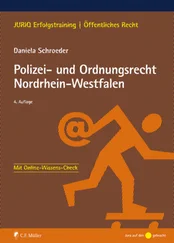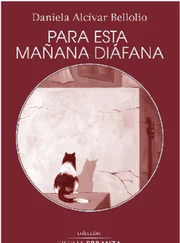When he woke up around six, his mood was back to normal and nothing reminded him of the sadness, that had swept over his mind and colored it so completely, that he did not have the slightest chance to escape. His heart center felt differently though, he noticed. It was wider, more open, less weighted.
◊◊◊
On Monday Paul ran a few errands and tried to kill time in the archaeological Pergamon Museum. Even though Paul felt reminded of his favorite museum in New York, the Metropolitan Museum of Art on Fifth Avenue, where he used to spent hours in the archaeological section every year, today he could not generate the necessary interest. He got tired after less than an hour and searched for the cafeteria, where he ate a warm lentil soup and a piece of cake. He bought an American Newspaper on his walk back to the hotel just in case he would be bored later.
On the way back he watched his mind fearfully. He had passed the Reichstag undisturbed, but when he headed for Tiergarten, the sounds of marching boots of an army of soldiers returned to the surface of his consciousness. But this time, he was prepared. He tried to see the rising images more clearly, listen to the words the soldiers uttered in harsh German language, and even feel the feelings of fear and threat that held his heart ransom as soon as this inner scenario came alive. “Do these memories belong to me or to this city”, he asked himself. “How can they be so strong, so vivid, so present even today?” Paul had never had a clairvoyant experience like this in his life. When he walked through New York, the nineteen twenties did not come alive in his mind. And even here, he did not witness the time, when the Berlin wall was built in 1961; he did not see the former East Berlin, when he passed the Reichstag building, even though it had been part of the German Democratic Republic, the communist side of a Germany that was split as a result of the new balance of Eastern and Western powers after the Second World War, as the explicit demonstration of the cold war.
Now, Paul witnessed cars passing the marching battalion. Men in uniform obviously ranked higher than the soldiers, stood in the back of the cars, saluting and greeting with the right arm stretched upward in front of their stiff bodies. Paul could suddenly sense the pride of these young soldiers to serve their country; the pride of a nation that felt superior, of a race that arrogated to judge the value of human life, of other nations and other races; of a nation that believed in black and white – life that was worth living and life that was worth killing.
Today he faced his visions calmer, quieter and almost peaceful. The scenes came alive in his mind only, just like daydreams, he knew. He was willing, now, to take the time and watch them unbiased and curiously. There was no need for panic. The images could not harm him. After all, they were a historical, invisible part of this place, an indiscernible layer of life hidden beyond the actual and apparent. History had come alive for him and with less fear, he felt a sense of gratefulness arising. These visions changed his attitude toward Berlin. He was conscious of the painful past and thus experienced the presence in a different light – definitely more aware of the wounds of the city and less carefree.
Young girls dressed in uniforms stood alongside the streets, waving the soldiers good-bye. Some of them cried… As unforeseen as the images had appeared, the vision stopped. First, his mind became calmer and then normal thoughts started arising again. He caught a cab at the same place where he had fled from the visions last time.
He still had half of the afternoon to kill, too much time to do nothing and too little to do something. The newspaper did not interest him. Right now nothing was as interesting as his personal experiences. He pulled out a notebook he always carried with him to make sketches of ideas, parts of scores, melodies, harmonies - whatever came to his mind during the day -, sat down in the armchair and started to write down what had happened to him since that November night in SoHo. He remembered many thoughts, many words, many scenes of the past weeks. And he had countless questions. He did not try to make sense of the events. He just recalled them and wrote them down. As objectively as he could. The encounter in SoHo, the waitress, who did not see Karen Garin, her message, his fear, his nervousness, his counter-reaction to the reactions of his audience, his need as a musician to be perceived differently. And for the first time after his divorce, he was able to acknowledge, that he did not have a family anymore. He was alone, but he still lived like a husband and a father; his family lived far away, but he still believed he had one. How could he have lied to himself like that? Was it so bad to be alone? When he reread his notes again, he suddenly felt a dynamic energy in the events that was new to him. It seemed as if within the random and incoherent events there was a pattern hidden, a plan which he could not see.
In the end, Paul had to hurry to be on time for the concert. When he reached the Konzerthaus by taxi almost at the last minute, the atmosphere was totally different from two nights ago. Tonight there were many young people, casually dressed, many of them wore hats, bandanas or turbans; more than a few were dressed in Indian clothes. Paul felt a little stiff and nervous in his neatly ironed suit. He had to stand in line to enter. Unfortunately, he was unable to understand the anxious German conversations around him. He was so out of place that he even thought about leaving. But before he could turn around, he was pulled inside with the stream of excited people. Luckily, his seat was not too far in the back and he was happy to sink and hide in the red velvet cushions.
The curtain was open. On stage, he saw a sitar, a tabla, a tanpura and a violin. He cringed and his heart fell into a faster pace, when he asked himself, what the hell he did here. He could have been back at home by now. Suddenly, he feared that his expectations were much too high, so high that a huge disappointment had to follow. This woman had become almost holy in his mind. She knew him, she could tell his future… Who told him that all of this was not just a great manipulation. Maybe she wanted him to be here right now and everything she had said and done was just a means to get him here.
The lights were dimmed and a man, dressed in a white cotton suit came on stage. Barefoot. He bowed in front of the audience and sat on a carpet behind the tabla, a classical Indian drum. He started to play a nice slow beat. The audience applauded a little bit shy. The man kept playing, obviously merging with the pulse of his drum directly. Next, a young Indian woman entered the stage. She was dressed in a beautifully embroidered blue sari and when she bowed in front of the audience, the people were stunned by her self-conscious and winning smile. She sat elegantly crossing her legs behind the tanpura, took a deep breath and began to pull the strings with her right hand, resting the left hand in her lab. This was beautiful. Paul had rarely seen such loveliness and coolness based on the perfect mastery of an instrument. He wished, more of his students and colleagues would portray such ease in the technical relationship with their instrument. He tried to impart the knowledge to them that they had to see the instrument as a part of their body; it was like a third hand or a sixth finger. Only when the musician experienced this identity, his play could be stress-less and virtuosic. This young woman had perfected this difficult art naturally.
Next, a middle-aged woman came on stage. She looked European or American but wore an Indian long-shirt, that looked a little bit awkward on her. Her charisma was totally different from the Indian girl´s. This woman appeared less confident, more rigid and much more self-controlled. She must have had an education in classical Western music. Paul could not imagine that she would find her space in this trio and conform with the other two. But when she took the violin and started playing without hesitation or even a second of concentration, he was stunned by her skill that gave him goose bumps. This music touched him deeply. Good that he had stayed in Berlin.
Читать дальше












